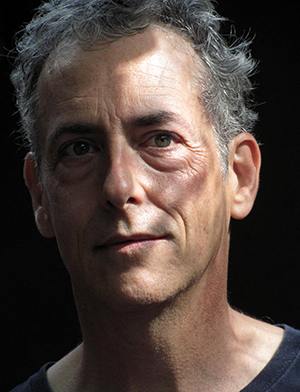
 Before Spider-Man became Spider-Man, he was Peter Parker, an orphan living with relatives of modest means, and a bullying victim forced to cope with the murder of his uncle.
Before Spider-Man became Spider-Man, he was Peter Parker, an orphan living with relatives of modest means, and a bullying victim forced to cope with the murder of his uncle.
Not many kids in those circumstances will develop superpowers from a bite by a radioactive spider, but a UC Merced psychologist believes those in the real world facing Peter Parker’s challenges could find resolve in the “pre-cloak” phase of Spider-Man’s existence.
Lecturer and alumnus Chris Fradkin and his research team posit just that in an article published recently in the journal Child Abuse and Neglect.
“Our study is the first that we’re aware of that considers the ‘pre-cloak’ stage of comic superheroes as a tool for the empowerment of vulnerable children,” Fradkin said. “We believe this shared history of adversities can be of benefit to health professionals working with fostered and orphaned children in particular.”
While conducting his research, Fradkin found a similar approach being used by the A.C. Camargo Cancer Center in Brazil. The center uses a superhero motif to bolster resilience among pediatric cancer patients — using special comics and animated videos to instill an air of invincibility fueled not by a chemo drip, but by “Superformula.”
While the effectiveness of such an approach had not been fully studied, Fradkin was encouraged. If child cancer patients can be emboldened by the idea of superpowers, can’t disadvantaged and vulnerable children find strength in the histories they share with the pre-cloak versions of superheroes?
Children who are most at risk of experiencing psychological issues or engaging in risky behaviors are those who have life experiences similar to many of the fictional characters who go on to become superheroes: They may have lived in poverty (Captain America), have been abandoned by or lost their parents (Superman and Batman), have been abused or bullied (Spider-Man), or have had friends or family members murdered (Spider-Man and Iron Man).
Fradkin and his team studied the top 20 comic superheroes and found that 86 percent were orphaned or abandoned, 49 percent had at least one parent murdered, 29 percent were bullied and 29 percent endured economic struggles. And like many at-risk children, most of the superheroes experienced more than one of these adversities.
“The parallel may apply most strongly to children orphaned or abandoned by their families,” Fradkin said. “There is a message of shared history, overcoming difficulties and knowing that they share a common plight.”
This and other publications have resulted from Fradkin’s recent six-month residency in Brazil, where he plans to return next summer after lecturing at UC Merced through the spring semester. Fradkin earned his Ph.D. in psychological sciences at UC Merced in 2014.
Fradkin and his coauthors, Brazilian scholars Maria Angela Mattar Yunes and Gelson Vanderlei Weschenfelder, hope that further studies in this area can lead to intervention strategies to be used by professionals who work with disadvantaged children.
“Some children grow up in stable, loving households, and others experience disruption and disconnection,” Fradkin said. “For the clinician and the educator, vulnerable children present challenges that can overwhelm. At this point, interventions need to be designed and tested to see if this pre-cloak superhero strategy can be effective.”






